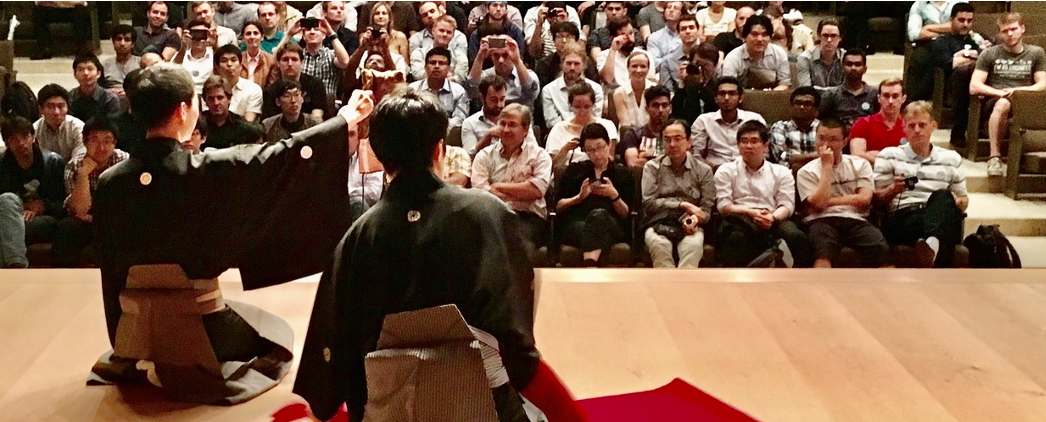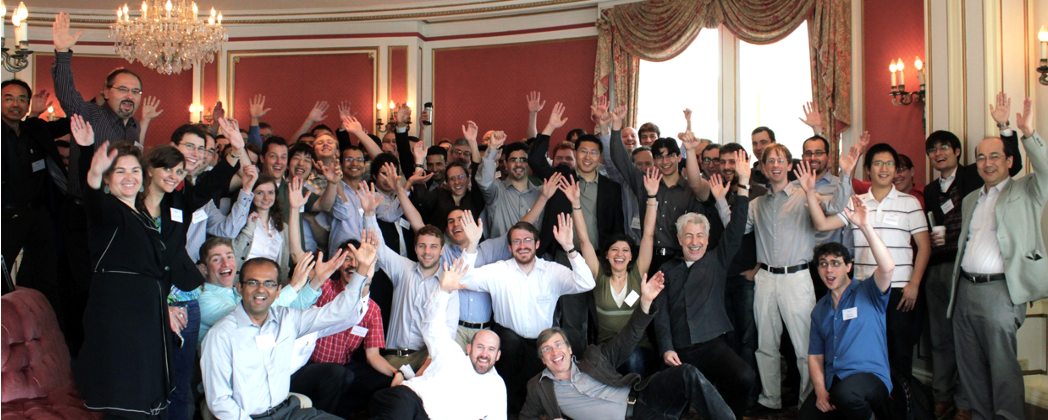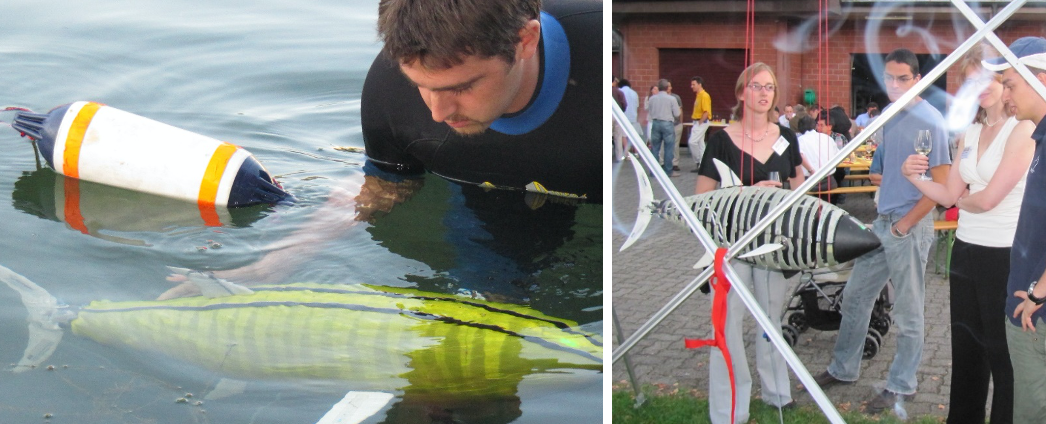Date and time:
Thursday April 29 at 4:00pm (CET) - 7:00am (PDT) - 11:00pm (JST).
Live Stream: Zoom Webinar (https://zoom.us/j/93647014054)
Live questions and discussion: Slido (https://app.sli.do/event/w1tbrwgl)
Speaker: Giorgio Metta
Italian Institute of Technology, Genoa, Italy
Moderator: Tamim Asfour,
Karlsruhe Institute of Technology (KIT)
Front Row Participants: Chiara Bartolozzi, Jose Santos-Victor, Daniele Pucci, Giulio Sandini, Serena Ivaldi
Title: 10 years with iCub
Video on Bilibili: https://www.bilibili.com/video/BV1Pf4y1W7Z6/
Video on YouTube: https://youtu.be/t_bVOQnorPs
Abstract:
iCub is a humanoid robot designed to support research in embodied AI. At 104 cm tall, iCub has the size of a five year old child. It can crawl on all fours, walk, and sit up to manipulate objects. Its hands have been designed to support sophisticated manipulation skills. iCub is distributed as Open Source following the GPL licenses and can now count on a worldwide community of enthusiastic developers. The entire design is available for download from the project’s repositories (http://www.iCub.org). More than 40 robots have been built so far which are available in laboratories across Europe, US, Korea, Singapore, and Japan. It is one of the few platforms in the world with a sensitive full-body skin to deal with the physical interaction with the environment including possibly people. I will present the iCub project in its entirety showing how it is evolving towards fulfilling the dream of a personal humanoid in every home. Approach (optional): The iCub stance on artificial intelligence postulates that manipulation plays a fundamental role in the development of cognitive capability. As many of these basic skills are not ready- made at birth, but developed during ontogenesis, we aimed at testing and developing this paradigm through the creation of a child-like humanoid robot: i.e. the iCub. This “baby” robot is meant to act in daily life scenarios, performing tasks useful for learning while interacting with objects and people. The small (104cm tall), compact size (approximately 29kg and fitting within the volume of a child) and high number (53) of degrees of freedom combined with the Open-Source approach distinguish iCub from other humanoid robotics projects developed worldwide.
Giorgio Metta(Speaker Bio)

Giorgio Metta is the Scientific Director of the Istituto Italiano di Tecnologia (IIT). He holds a MSc cum laude (1994) and PhD (2000) in electronic engineering both from the University of Genoa. From 2001 to 2002, Giorgio was postdoctoral associate at the MIT AI-Lab. He was previously with the University of Genoa and from 2012 to 2019 Professor of Cognitive Robotics at the University of Plymouth (UK). He was member of the board of directors of euRobotics aisbl, the European reference organization for robotics research. Giorgio Metta served as Vice Scientific Director of IIT from 2016 to 2019. He coordinated IIT's participation into two of the Ministry of Economic Development Competence Centers for Industry 4.0 (ARTES4.0, START4.0). He was one of the three Italian representatives at the 2018 G7 forum on Artificial Intelligence and, more recently, one of the authors of the Italian Strategic Agenda on AI. Giorgio coordinated the development of the iCub robot for more than a decade making it de facto the reference platform for research in embodied AI. Currently, there are more than 40 robots reaching laboratories as far as Japan, China, Singapore, Germany, Spain, UK and the United States. Giorgio Metta research activities are in the fields of biologically motivated and humanoid robotics and, in particular, in developing humanoid robots that can adapt and learn from experience. Giorgio Metta is author of more than 300 scientific publications. He has been working as principal investigator and research scientist in about a dozen international research as well as industrial projects.






